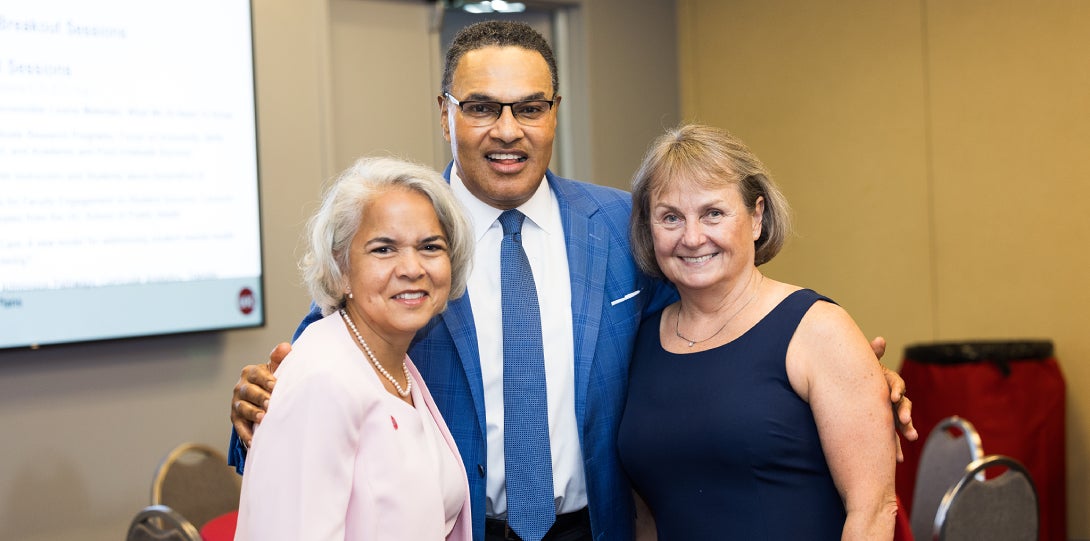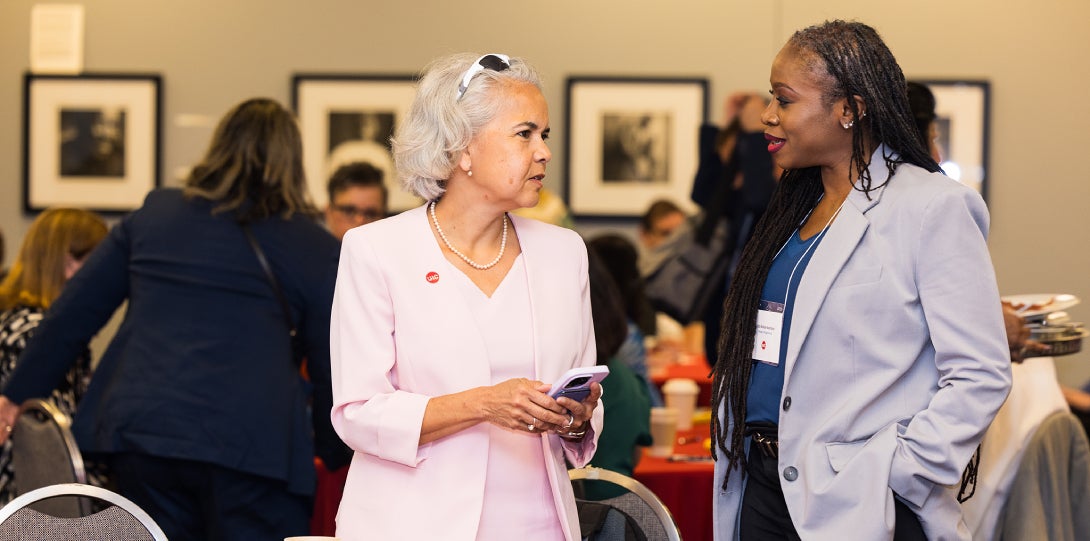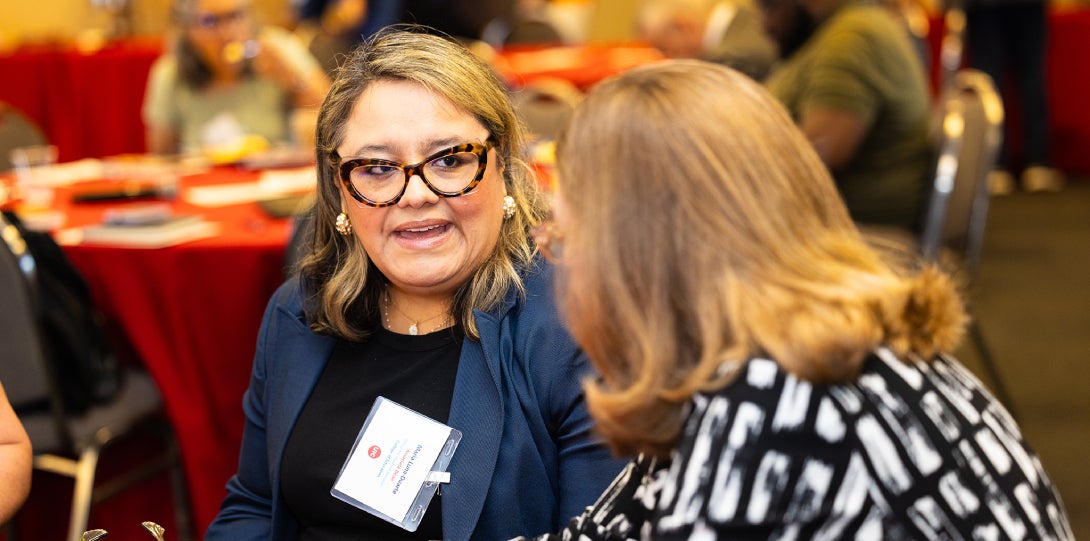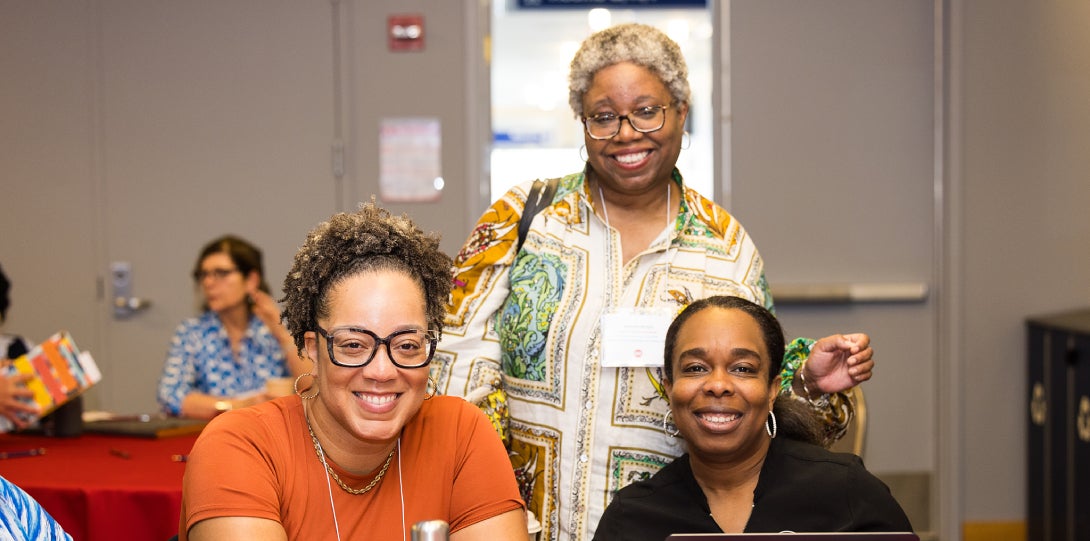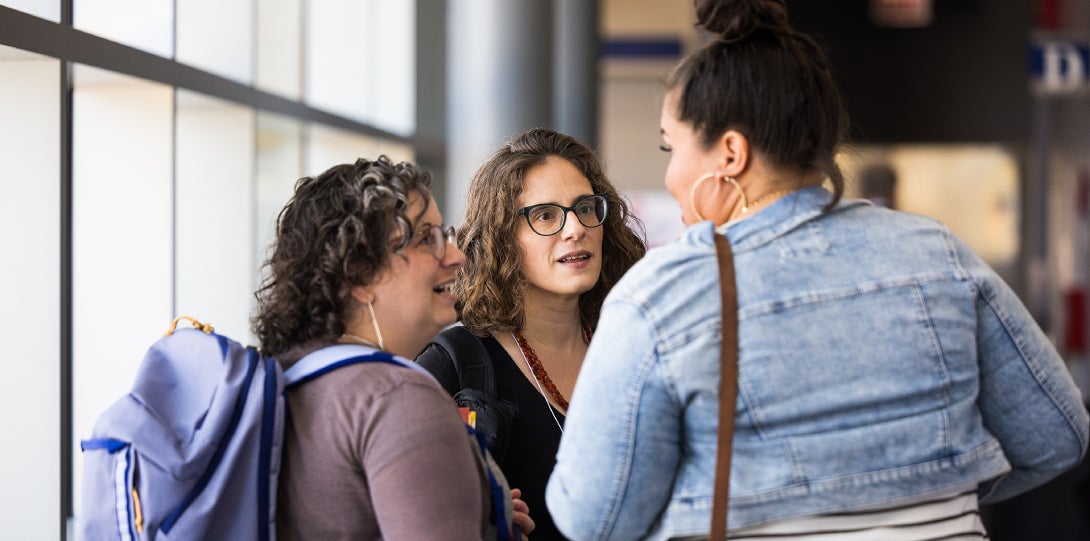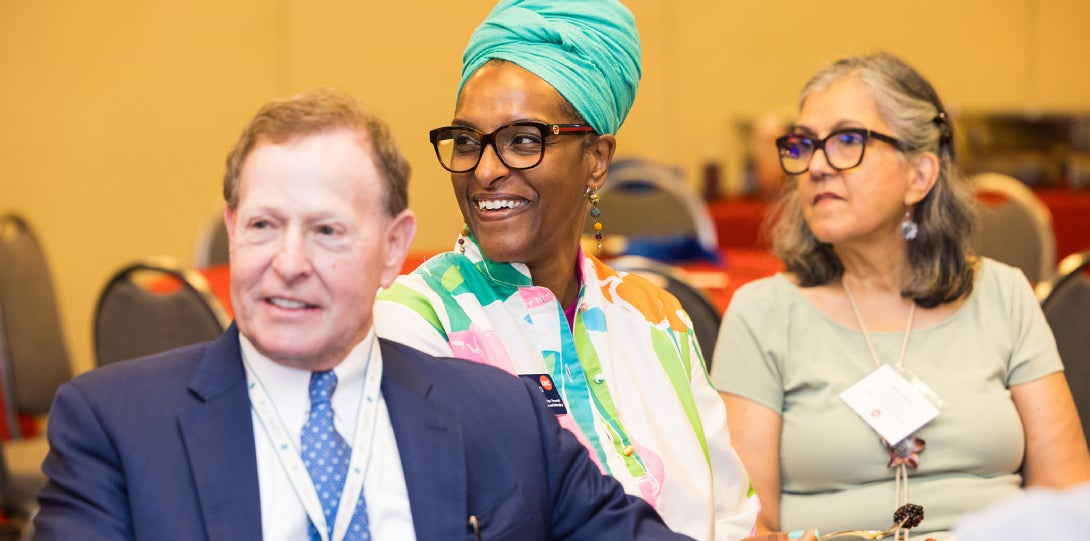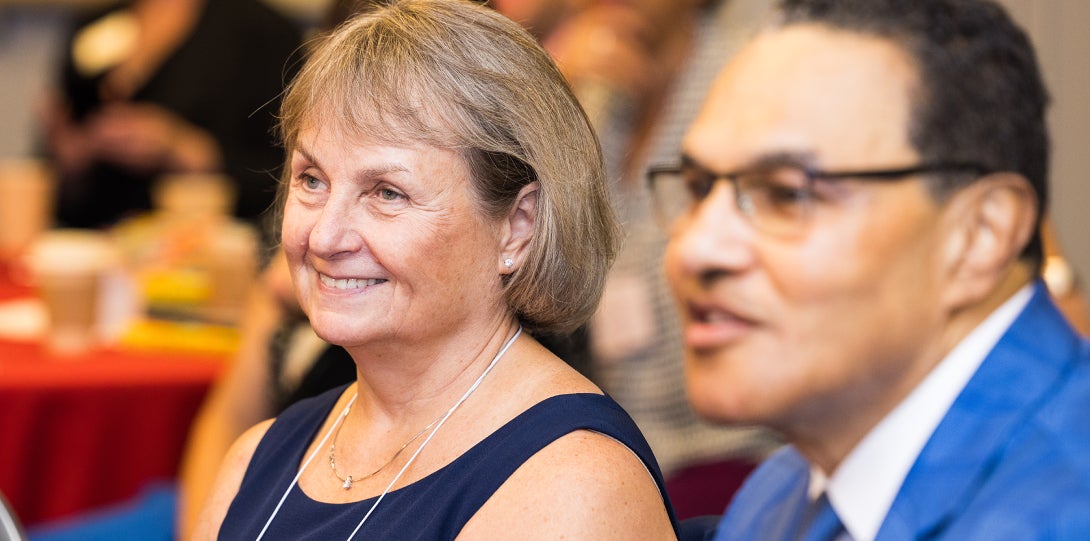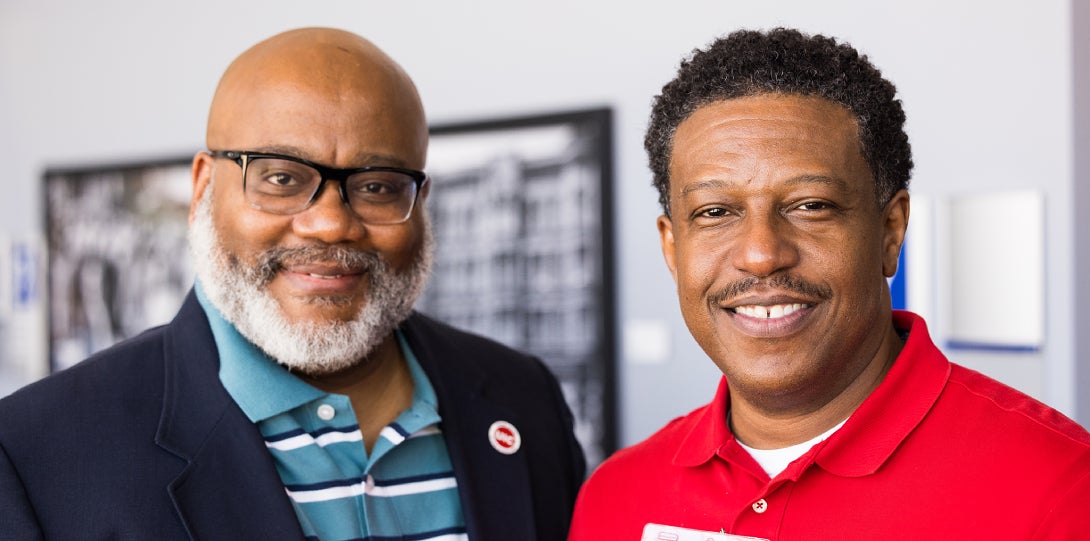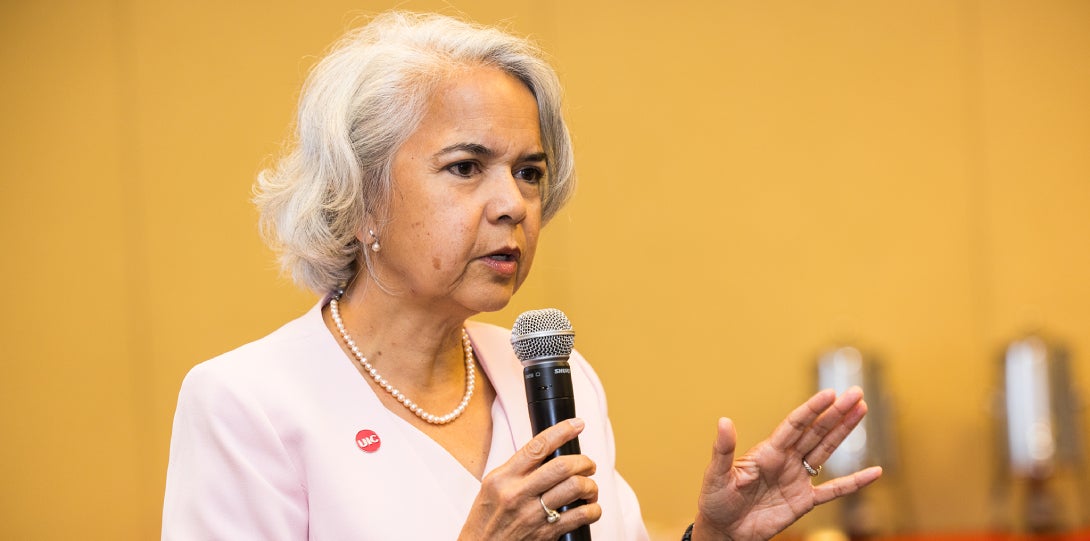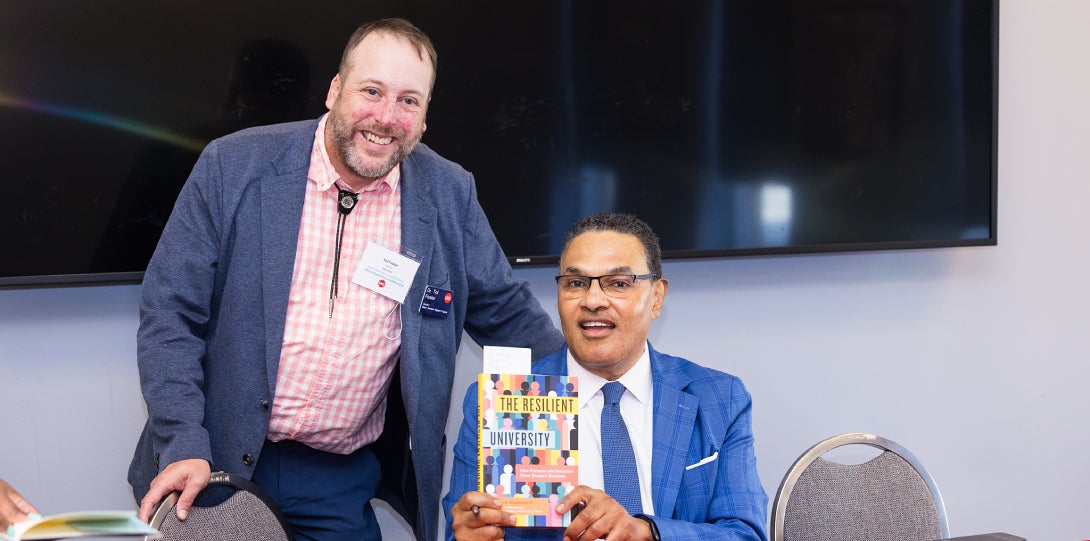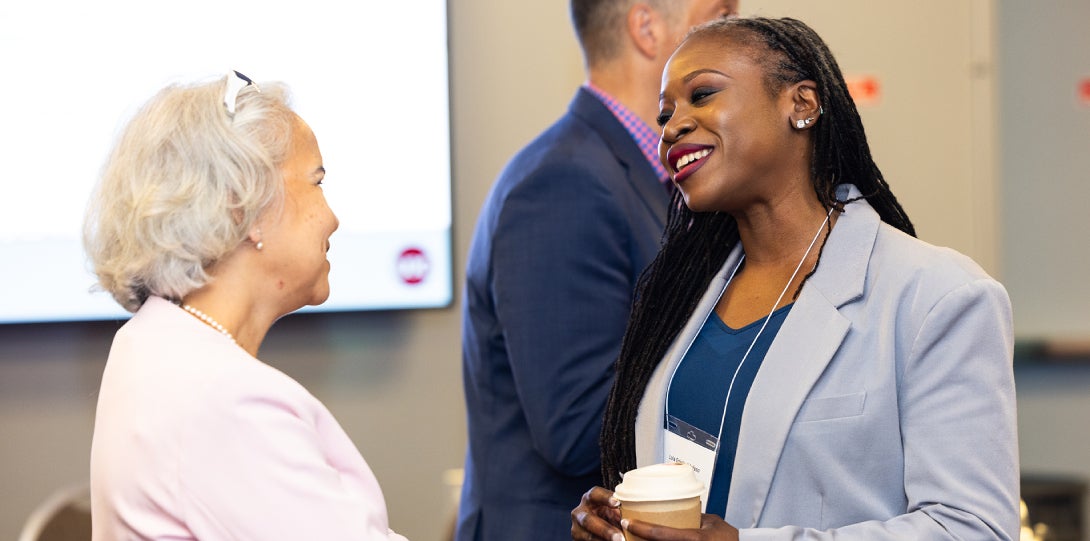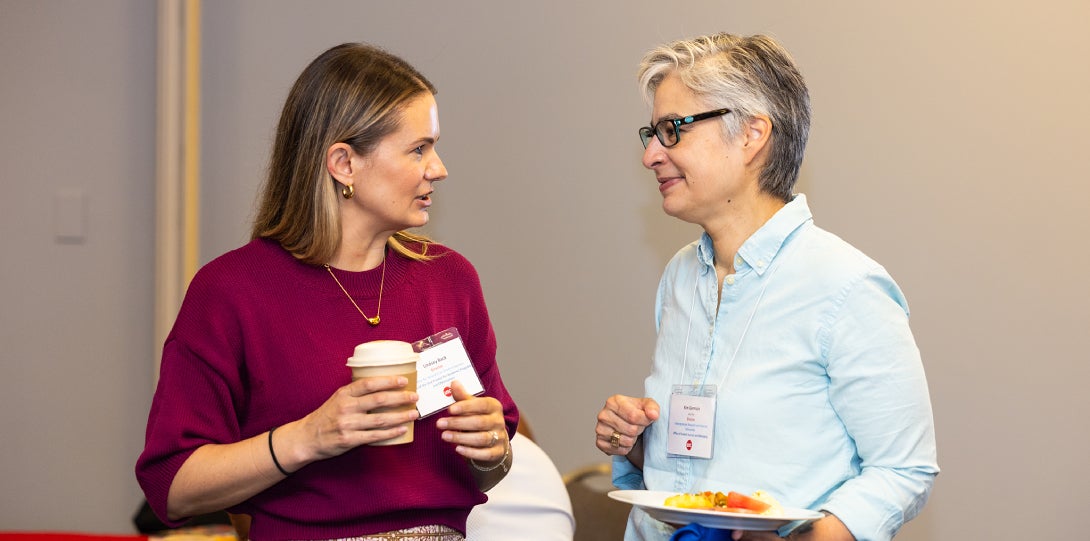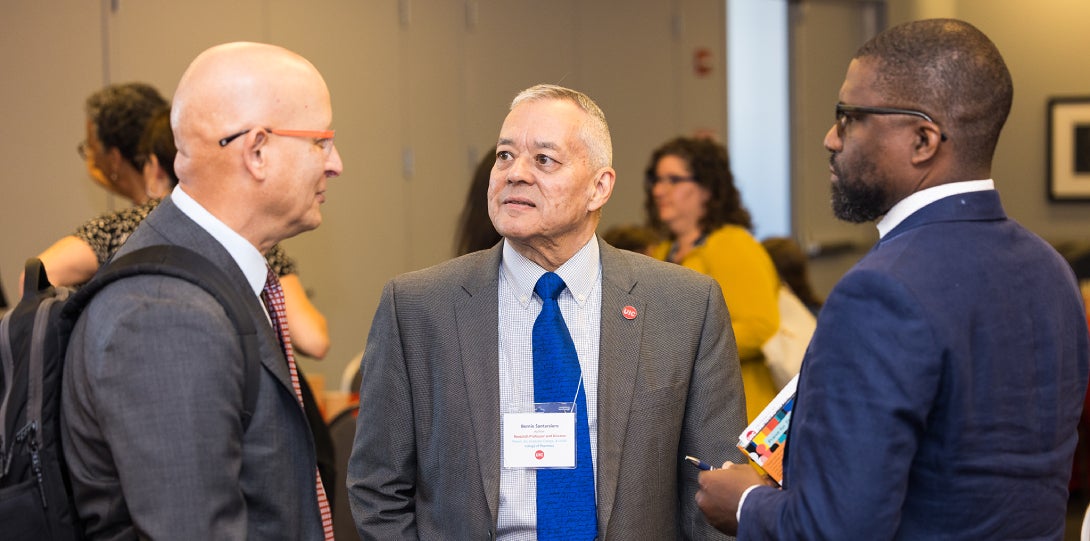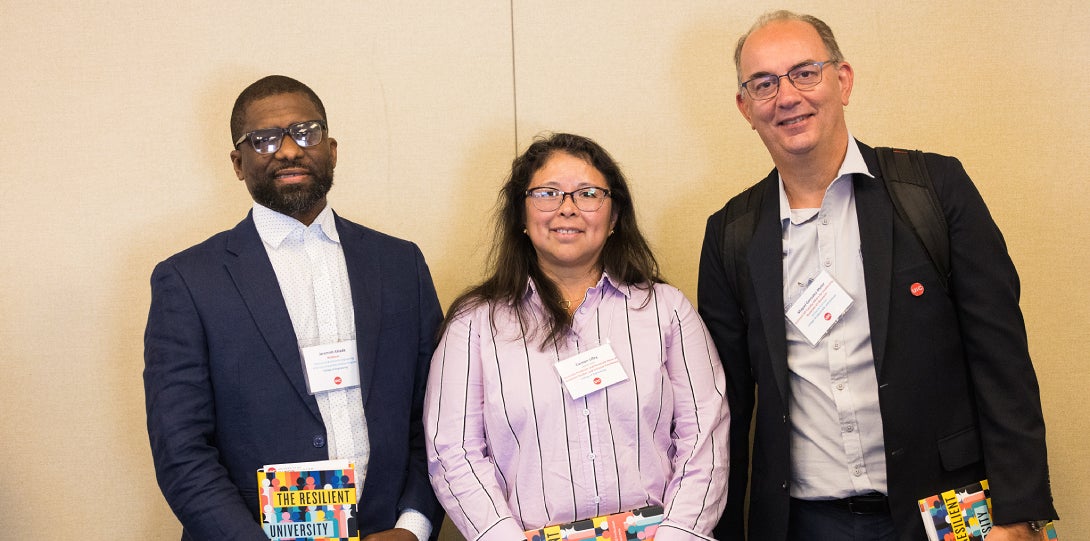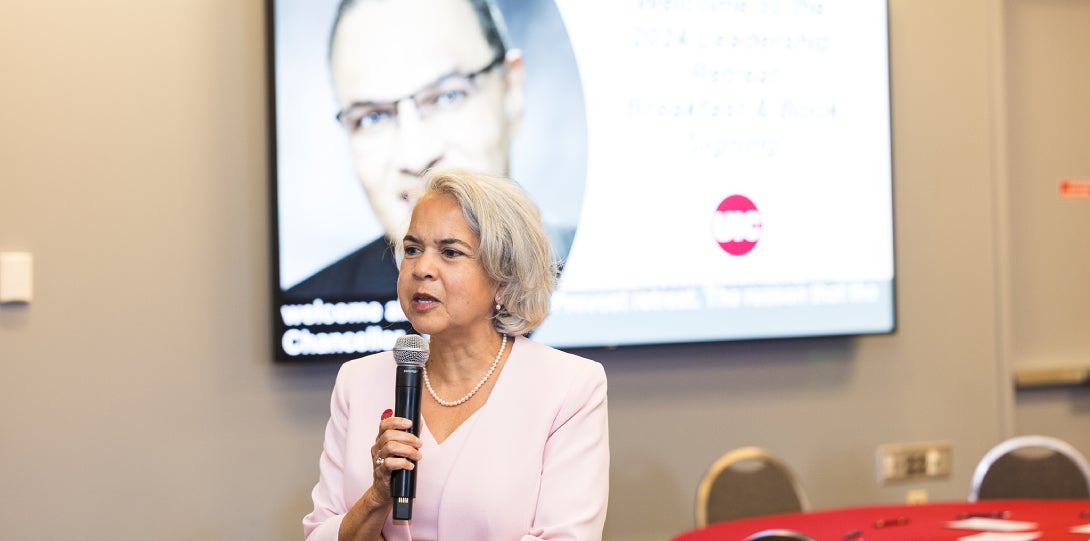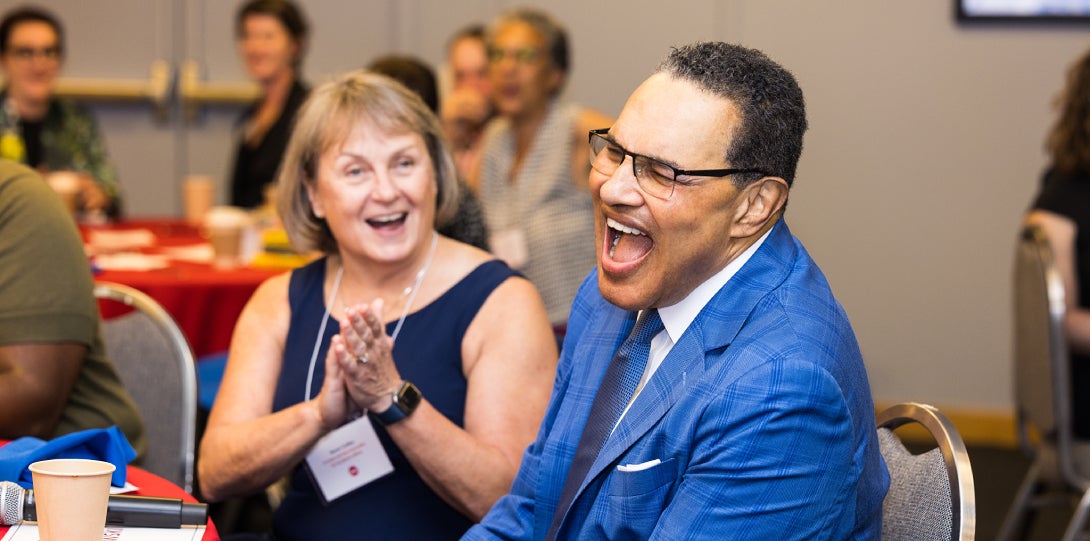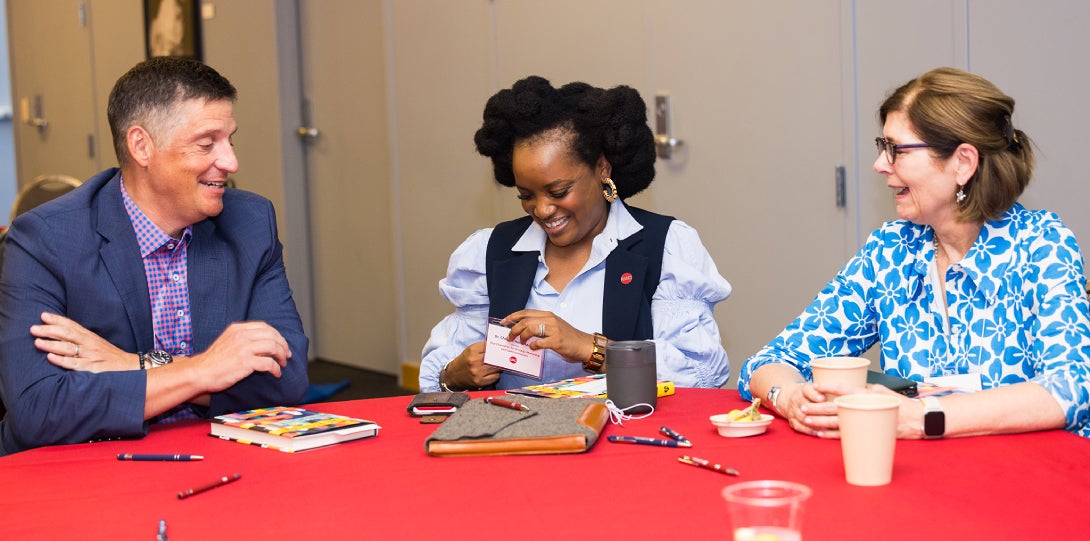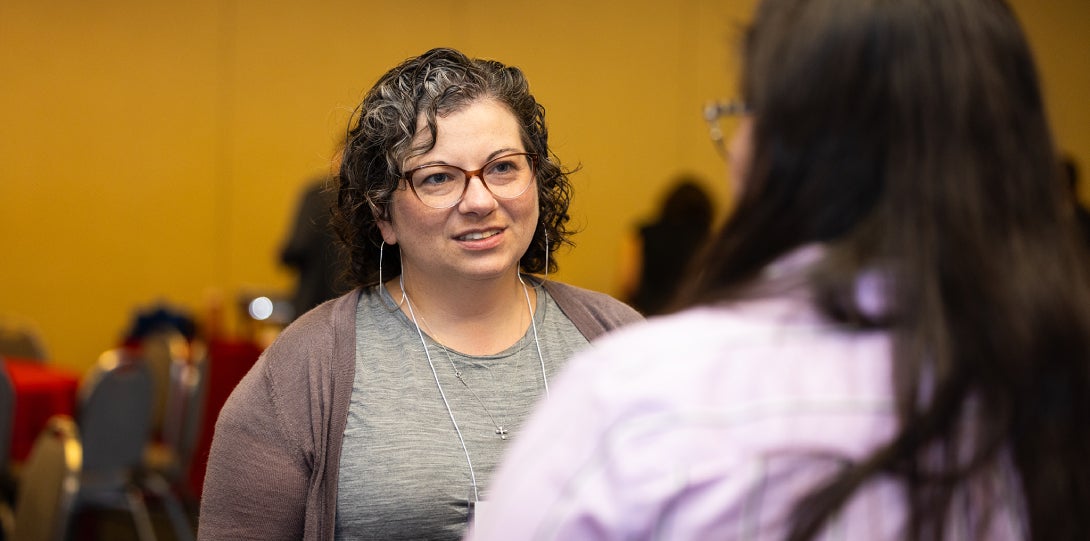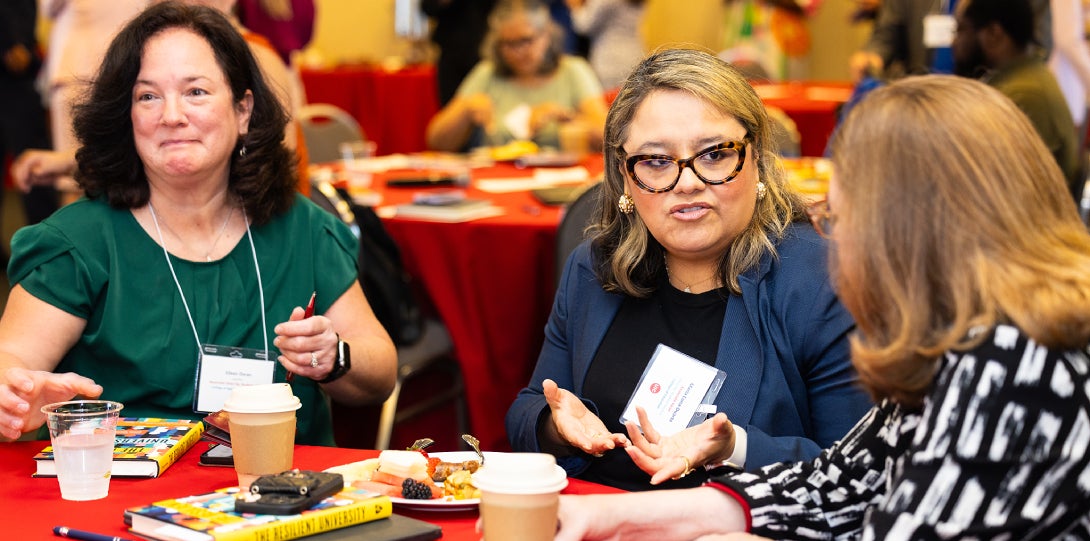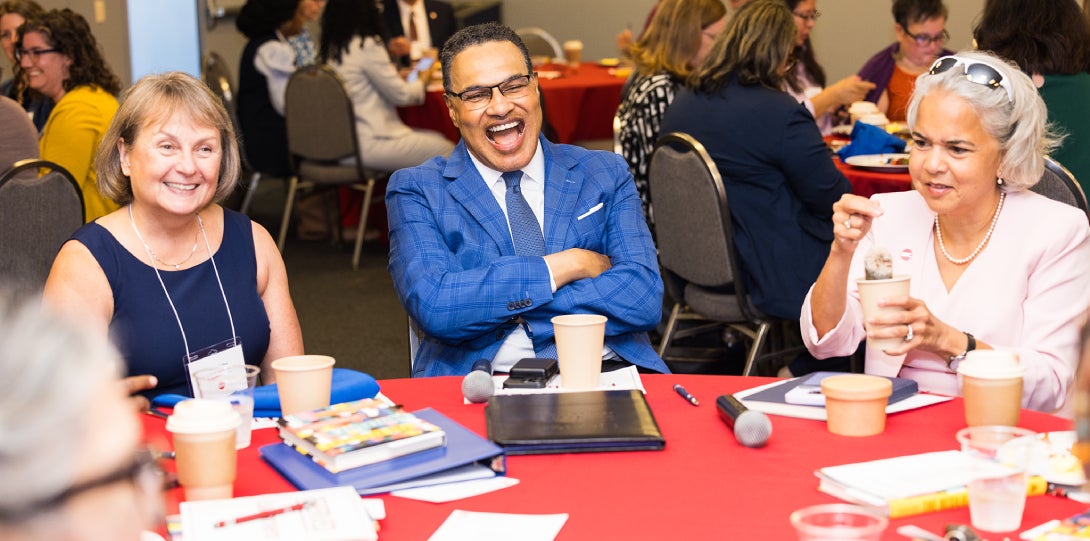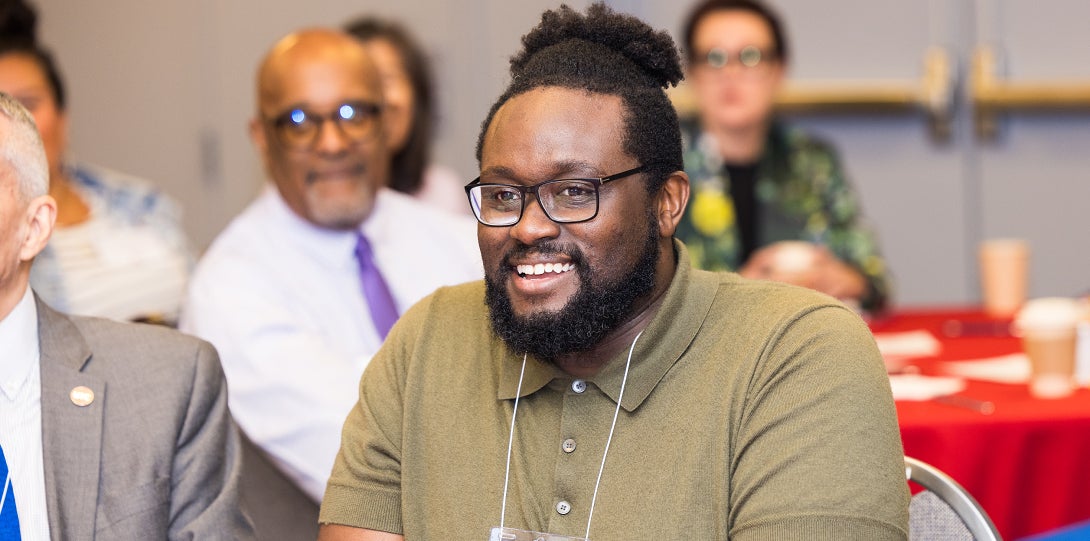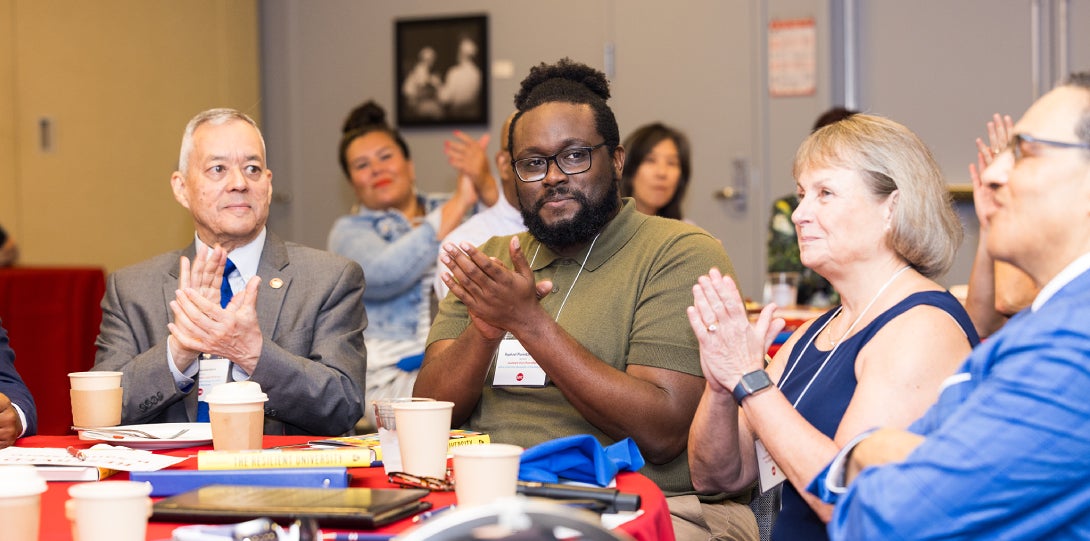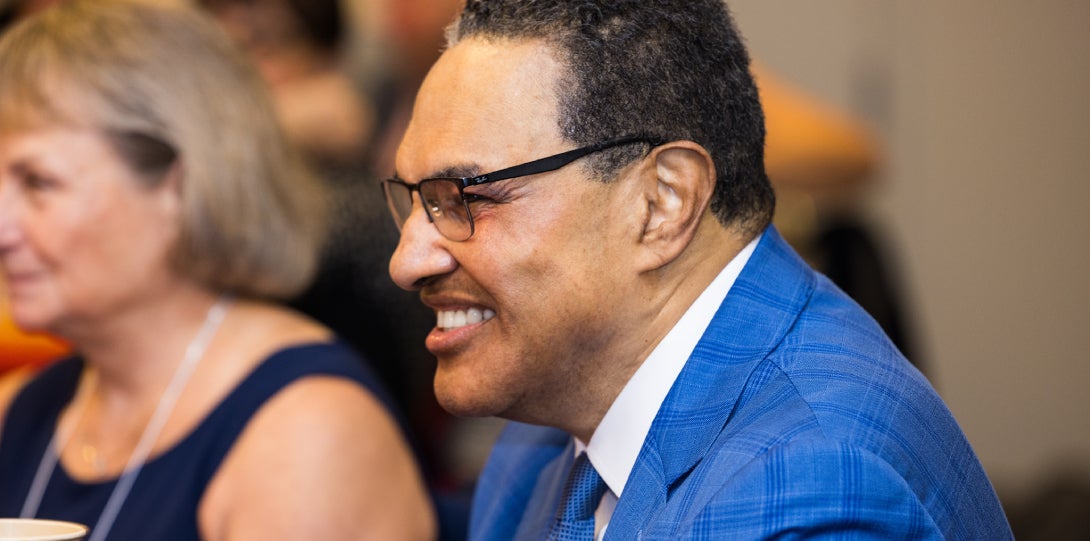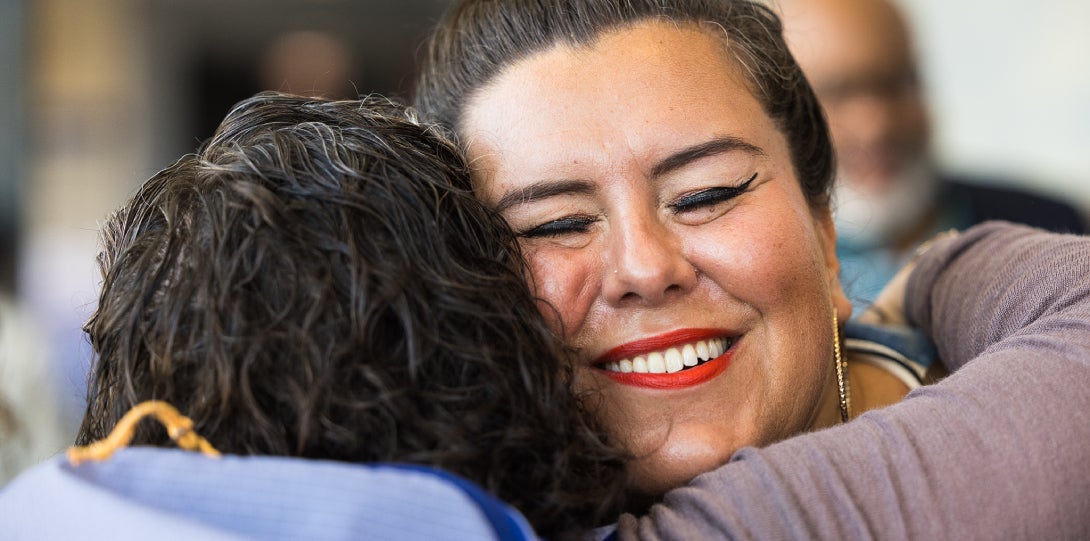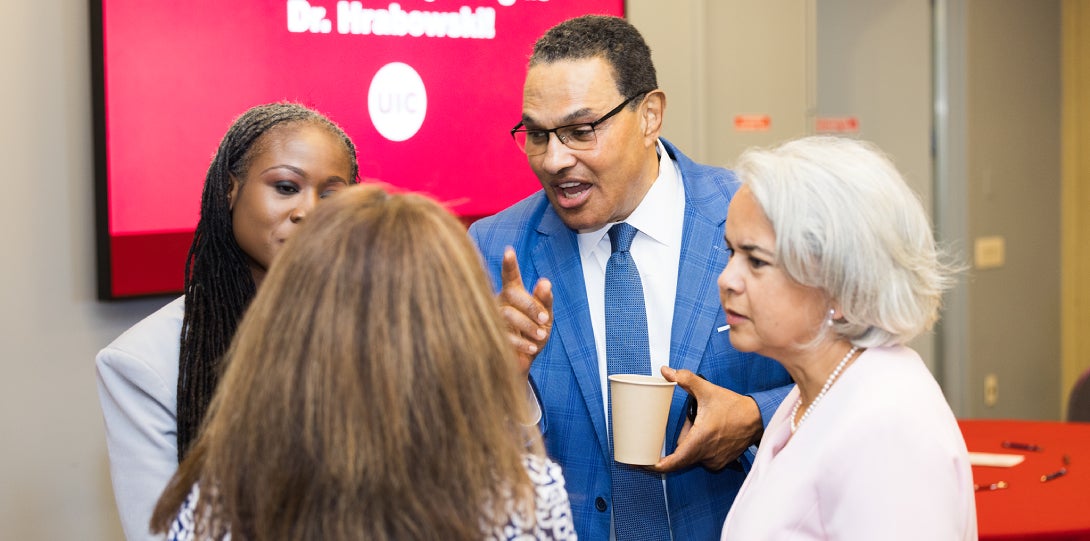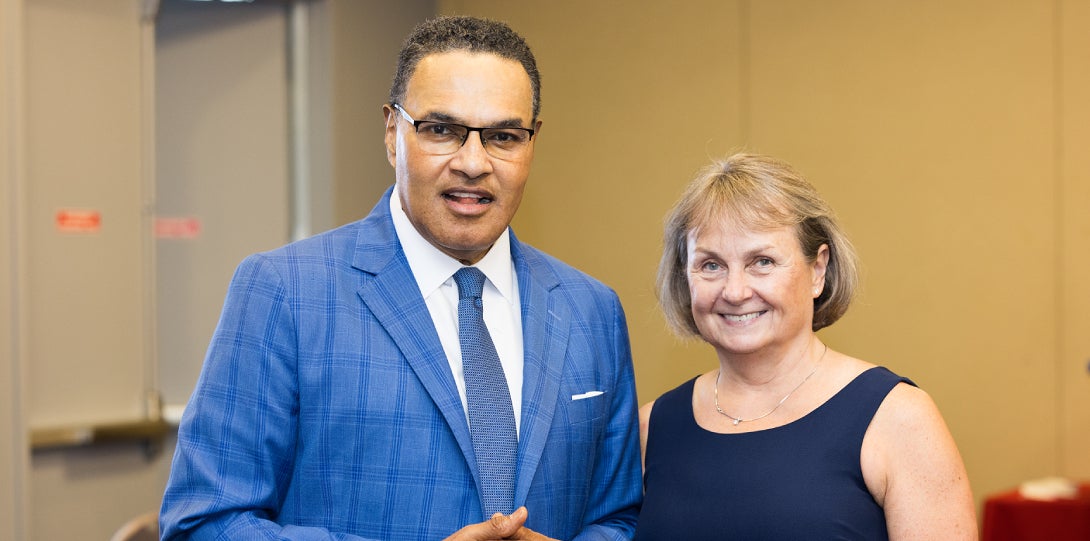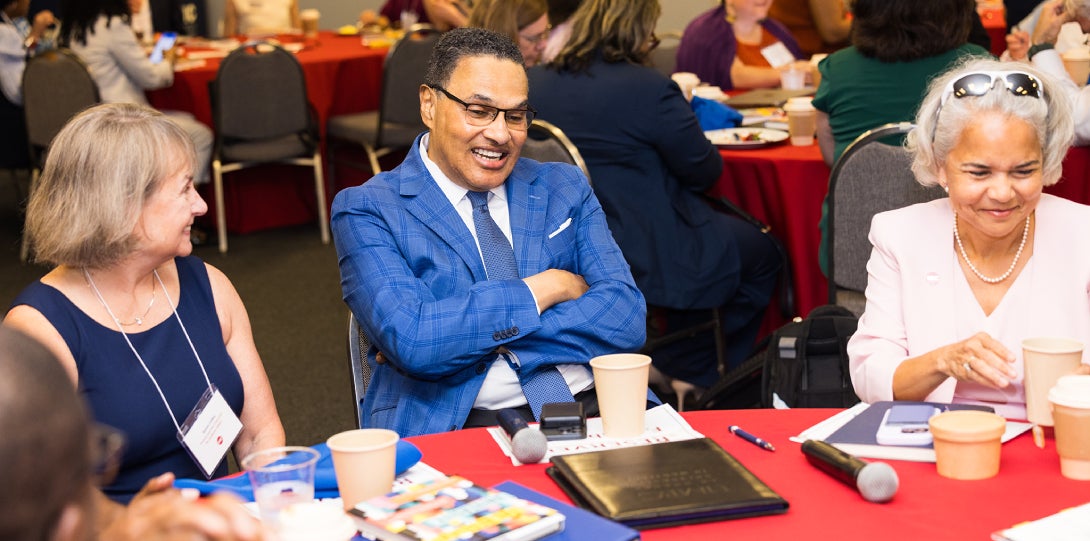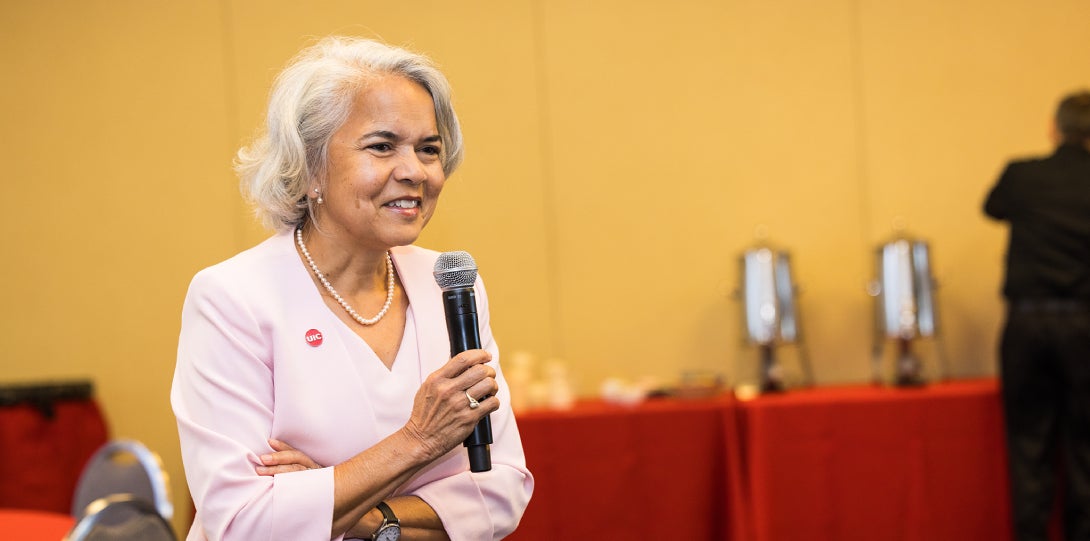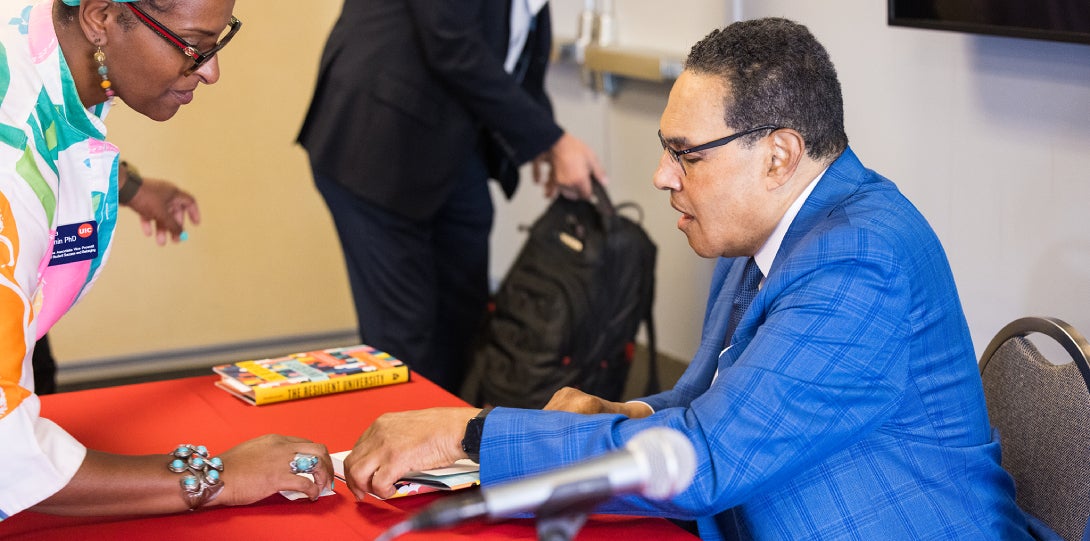2024 Leadership Retreat
Elevating Student Success
2024 Leadership Retreat
Tuesday, August 13, 2024
10:00 a.m. – 2:00 p.m.
Isadore & Sadie Dorin Forum
725 W. Roosevelt Rd.
Agenda, Presentations, & Resources
Breakout Session Presentations & Resources
Collected materials & resources from all six 2024 Breakout Sessions.
1) Creating Accessible Course Materials: What We All Need To Know
Presented by:
- Peter Berg | UIC ADA Coordinator
- Sophia Hamilton | Director, UIC Disability Resource Center
- Dr. Jemma Ku | Director, IT Accessibility
Description:
What makes a syllabus, a PowerPoint, or a scholarly article accessible to UIC community members with disabilities? What makes these materials inaccessible? This session will cover basics of course materials accessibility, focusing on how faculty and staff can create materials that meet Web Content Accessibility Guidelines. Information will also be provided about wider efforts and resources to ensure digital accessibility across all UIC information and communications technology.
Resources:
2) Undergraduate Research Programs: Focus on Inclusivity, Skills Attainment, and Academic and Post-Graduate Success
Presented by:
- Carlos Crespo | Dean, College of Applied Health Sciences, Professor, Kinesiology and Nutrition
- Rosilie Hernández | Associate Dean, College of Liberal Arts and Sciences, Department of Hispanic and Italian Studies
- Kim Germain | Director, Undergraduate Research and External Fellowships
Description:
Research demonstrates that undergraduate research experiences benefit in the following areas: academic success and persistence, interest in and admittance to graduate programs, gains in skills such as analysis, critical thinking, communication, leadership, and teamwork, and developing a professional identity. This session will focus on college-based undergraduate research programs at UIC, and facilitators will share experiences on what it takes to build and sustain a program, the types of funding sources available, how to make these programs inviting for students who are not already “research bound,” how to promote faculty participation, as well as how to integrate a framework for academic and professional skills attainment into the research experience.
Resources:
3) Talking with Instructors and Students about Generative AI
Presented by:
- Lauren Woods | Associate Director for Teaching Development Pathways & CIRTL@UIC, Center for the Advancement of Teaching Excellence
- Katie Pierson | Associate Director for Educational Development, Center for the Advancement of Teaching Excellence
Description:
When it comes to engaging with generative AI in the classroom, is your department or unit a) avoiding the topic for as long as possible, b) fully embracing it, or c) somewhere in between? What about instructors? Are they talking with students about the use of generative AI in their courses? Whether embracing AI or trying to hide from it, it is important to start having conversations about the possibilities and limitations of its use in the classroom. This session will provide participants with an overview of generative AI as it relates to teaching and learning contexts, along with discussion prompts and resources to help initiate conversations on the considerations to keep in mind when using or not using generative AI in your field or area.
Resources:
4) Strategies for Faculty Engagement on Student Success: Lessons and Examples from the UIC School of Public Health
Presented by:
- Jamie Chriqui | Professor & Senior Associate Dean, Division of Health Policy and Administration, School of Public Health
- John Slavick | Associate Dean for Student Affairs
- Clari Gomez | Assistant Director of Academic Progress and Retention
- Tessa Bonney | Assistant Professor and Lead, SPH Success Program
Description:
This session will explore approaches adopted by the School of Public Health to prepare faculty to better support student success inside and outside of the classroom through required professional development on teaching and learning, a faculty-led student success program, teaching-related programming embedded within faculty mentoring, and a continuous feedback process to provide faculty and UEOs with insight regarding challenges that students are having with specific courses to support continuous quality improvement. This panel will also will briefly describe the extensive wrap-around services offered through our Office of Student Affairs and related offices in support of student success, and will be followed by roundtable discussions of initiatives that are happening in participant’s colleges/units related to faculty engagement in student success.
Resources:
5) Stepped Care: A new model for addressing student mental health and well-being?
Presented by:
- Kathleen Kashima | Senior Associate Dean of Students and Clinical Assistant Professor, College of Medicine
- Michael Gerges | Executive Director, CHECK Program
- Samantha Wahlers | Student, College of Medicine
- Vidya Govind | Assistant Professor of Clinical Pediatrics, College of Medicine
Description:
In this session, participants will learn about a model, Stepped Care, to address the campus concern about student mental health and well-being. Program components individualize services and resources without increasing the number of licensed providers. Pilot project results will be reported to ignite a shared participant discussion about approaches to address student mental health and well-being.
Resources:
6) Transfer Admission Pathways, Curricular Analytics, Transfer Degree Plans
Presented by:
- Nikos Varelas | Vice Provost for Academic Programs and Effectiveness
- Amy Knetl | Director, Office of Transfer Articulation and Degree Audit
- Lindsey Back | Director, Office for Research on Student Success
- Kiely Fletcher | Vice Provost for Enrollment Management
- Joey Volpe | Associate Vice Provost for Advising Development
Description:
In this session, we will explore the latest developments in establishing seamless transfer pathways for students from City Colleges of Chicago, other Illinois community colleges, and Chicago Public Schools to UIC, as well as discuss innovative tools for undergraduate curriculum design and degree planning.
Resources:
